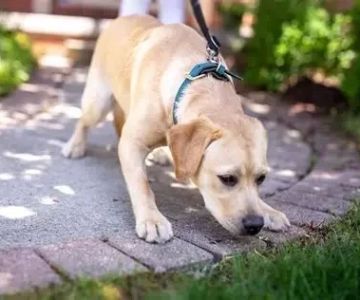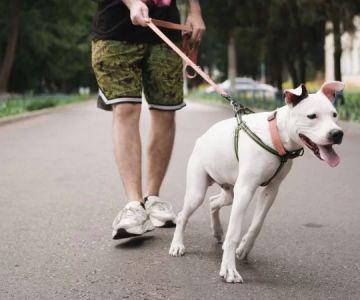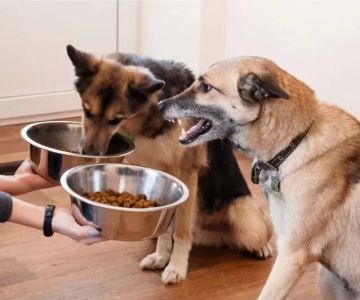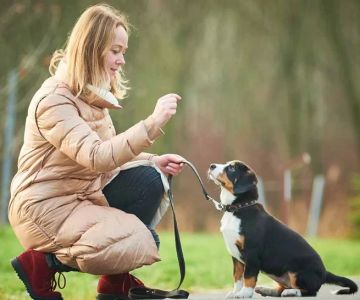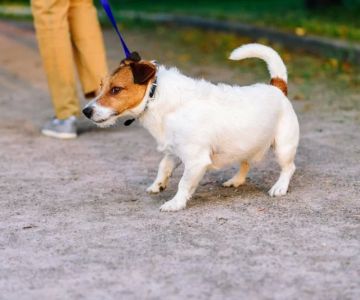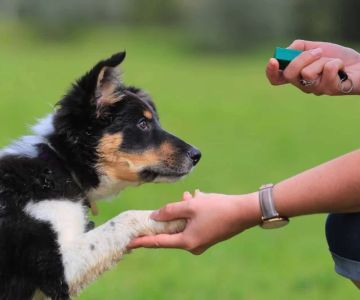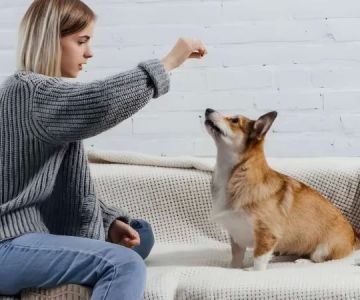Puppy Training Tips for First-Time Dog Owners
Becoming a first-time dog owner is an exciting experience, but it also comes with a fair share of challenges, especially when it comes to training your new puppy. Proper training is essential for building a strong bond with your puppy and ensuring they grow up to be well-behaved, happy, and healthy. If you're looking for guidance, here are some essential puppy training tips to help you get started.
1. Start Early: The Sooner, the Better
One of the most important things you can do as a first-time dog owner is to start training your puppy early. Puppies are most receptive to learning between the ages of 8 to 16 weeks. The earlier you start training, the easier it will be for your puppy to understand what is expected of them. It's crucial to begin with basic commands like "sit," "stay," and "come." Starting early also helps you establish a strong foundation for more advanced training as your puppy grows.
2. Use Positive Reinforcement
Positive reinforcement is a powerful tool in puppy training. Reward your puppy with treats, praise, or playtime whenever they successfully follow a command. Positive reinforcement helps your puppy associate good behavior with something enjoyable, making them more likely to repeat it. Remember, consistency is key, so make sure you reward your puppy every time they perform the desired behavior. This will encourage them to continue making the right choices.
3. Be Patient and Consistent
Puppy training requires patience and consistency. Puppies, especially first-time dogs, can be a bit stubborn at first, and they may not always understand your expectations right away. It's essential to stay calm and consistent with your training methods. If your puppy makes a mistake, avoid punishment, and instead redirect their behavior and reward them when they do it correctly. Over time, your puppy will begin to understand and learn new behaviors.
4. Socialize Your Puppy
Socialization is one of the most crucial aspects of puppy training. Exposing your puppy to different people, animals, and environments helps them become more adaptable and confident. Take your puppy on walks, visit dog parks, and invite friends and family over to interact with your puppy. Socializing your puppy from an early age will reduce the risk of behavioral problems later on and help your dog feel comfortable in various situations.
5. Crate Training for Better Control
Crate training is an effective way to provide your puppy with a safe and comfortable space while also teaching them good behavior. A crate gives your puppy a designated area where they can relax and sleep without getting into trouble. It also helps with house training by encouraging your puppy to hold their bladder until they are let outside. Make sure to create positive associations with the crate by offering treats and praise when your puppy goes inside.
6. House Training: Establish a Routine
House training is one of the first and most important tasks for any first-time dog owner. Establish a consistent routine for feeding and potty breaks. Take your puppy outside regularly, especially after meals, naps, and playtime. When your puppy does their business outside, immediately reward them with praise and treats. Consistency is critical, and it may take some time before your puppy fully understands where it's appropriate to go. But with patience and dedication, your puppy will learn the right behaviors.
7. Keep Training Sessions Short and Fun
Training should be a positive experience for both you and your puppy. Keep training sessions short, especially during the early stages. Puppies have short attention spans, and too much repetition can make training feel like a chore. Aim for 5-10 minute sessions, and always end on a positive note with a reward. Incorporate games, toys, and interactive activities into your training to keep it fun and engaging for your puppy.
8. Seek Professional Help If Needed
If you're struggling with training or specific behavioral issues, don't hesitate to seek professional help. A certified dog trainer can provide valuable insights and guidance tailored to your puppy's needs. Look for trainers with experience working with puppies and first-time dog owners. Their expertise can make a significant difference in your puppy's training journey.
9. Build a Strong Bond with Your Puppy
Training isn't just about teaching commands—it's also about building a trusting relationship with your puppy. Spend quality time with your dog, whether it's through play, walks, or cuddling. The more positive experiences you share with your puppy, the stronger your bond will be. A well-trained puppy is not only obedient but also feels safe and secure in their relationship with you.
As a first-time dog owner, the training process can feel overwhelming, but it’s incredibly rewarding. By starting early, being consistent, and creating positive experiences for your puppy, you’ll be well on your way to raising a happy, well-behaved dog. Puppy training may take time, but the results will last a lifetime. And if you ever need assistance, remember that there are many resources, including professional trainers and pet care services, to support you every step of the way. Happy training!




